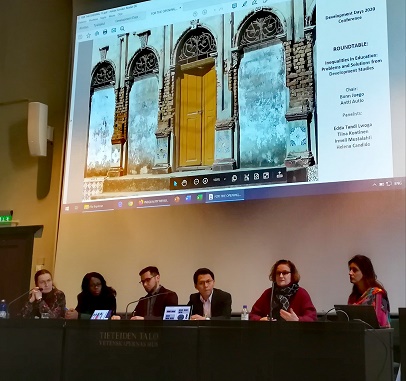BURGHART: Development Days 2020 foregrounded inequalities also in education
This year’s Development Days organized by the Finnish Society for Development Research discussed very timely topics and relevant questions. Being a teacher in higher education myself, I was particularly inspired by the roundtable discussion on inequalities in education and the critical assessment of the state of education in the global North and South. The various contributions boiled down to truly fundamental questions such as Is education a right or a privilege? Is education a public duty or a commodity that can be sold? Who are we educating? and How should we educate our own students?
These questions relate to central aspects such as access and affordability of education, commodification, persisting inequalities in education along gender, class, urban-rural, economic divides etc. Education is often regarded as an important driver of development and the improvement of people’s lives. Yet, the matter is more complex and calls for careful analysis.
Governments around the world are cutting budgets for education and, for example, universities are increasingly relying on external funding. The increase in external funding has led to less autonomy and authority over research. While Finnish and other Europeans (still) enjoy free access to higher education, in countries of the global South such as Tanzania, as Edda Tandi Lwoga, Associate Professor and Deputy Rector, College of Business Education in Dar es Salaam pointed out, national budget cuts accelerate the transition towards customer-driven higher education. Usually, student loan schemes cannot absorb the financial burden and are in many cases not a viable solution as the experience of Tanzania shows.
The commodification of education also increases inequality as profit becomes the driving logic of the education system. The Finnish education export is leaning strongly towards this paradigm, as Helena Candido emphasized, and the importance of the local context that is crucial for the success of education is not sufficiently taken into account. Although the support of private schools abroad is in stark contrast to fundamental principles of education in Finland, the export of Finnish education in cooperation with the private sector is expected to further increase in the future.
The panel presentations and discussions provided more food for thought and although the programme schedule was quite tight, there was time for networking and good talks with colleagues from mainly Africa and Europe.

